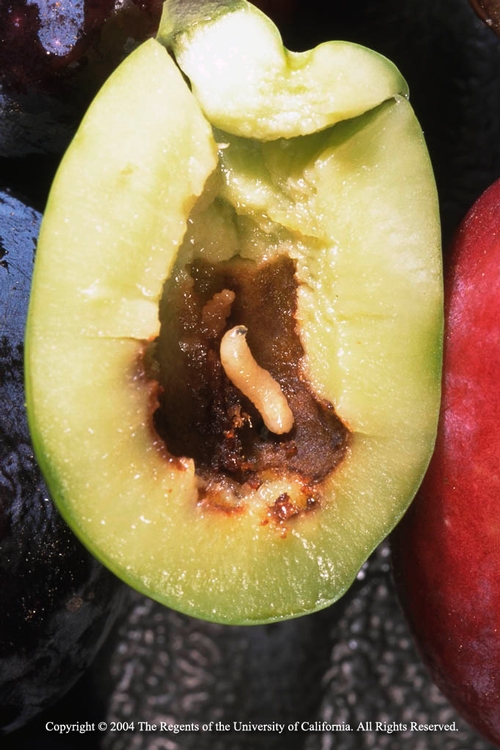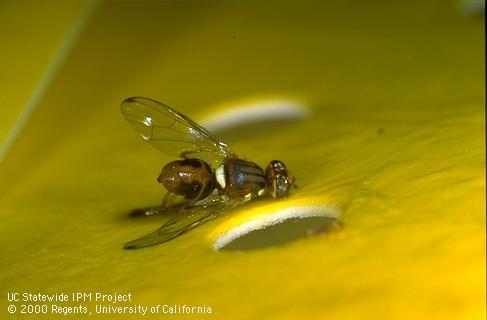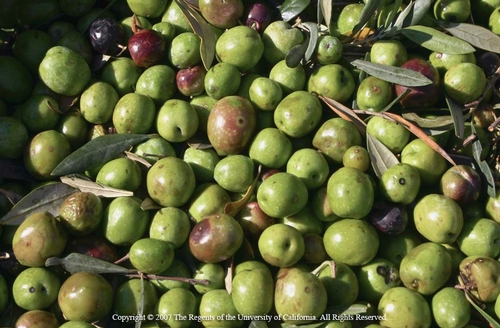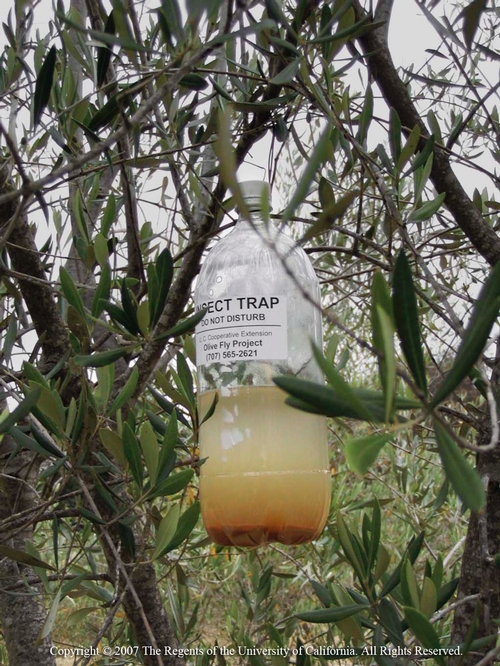I’d like to preserve olives from our tree, but last year each fruit had a little worm in it. What is this pest?
John B., Templeton
By Ann Dozier Master Gardener
Appreciated for their beauty and historical importance, olive trees are a beloved part of many gardens. However, an imported pest has become a severe problem for all growers.
Your crop was probably attacked by the olive fruit fly. This small (about ¼ ‘’ long) fly of Mediterranean origin was first noted in California in1998 and it has spread rapidly. Female flies pierce olives and lay eggs in the fruit. When eggs hatch, larvae (small whitish maggots) begin eating the fruit and when they have grown large enough they pupate and later emerge as adult flies to repeat the process. Olives thus attacked are unsuitable for preserving. If the damage is 10% or less, they may be used for lower grade oil. If you are bringing your olives to a community press, you should contact them first to find out their tolerance level.
To fight olive fruit flies, GF-120 NF Naturalyte Fruit Fly Bait sprays are available at farm supply stores and some nurseries. There are two different traps, Olipe and McPhail-type, which are basically containers filled with a bait of yeast attractant. These can be found online at Great Lakes IPM (www.greatlakesipm.com) or ISCA Technologies Inc. (www.iscatech.com). Setting many traps can reduce the numbers of olive fruit flies 30-100%. But the effectiveness is quite variable.
Commercial growers battling this pest say that backyard growers hinder their efforts by allowing fruit to hang on trees and drop. (The longer olives hang, the more possibility of infestation as flies are more active in warm weather and also more easily bore into ripe olives.) If you do not plan to use your olives it is good pest management to harvest and dispose of all olives in closed containers. During flowering season, use a sharp stream of water or Florel spray to prevent fruit formation. Those planting new trees could look into the several varieties of fruitless olives available. To find more information on sprays, traps (including a homemade trap) and fruitless trees, visit us online at : http://www.homeorchard.ucdavis.edu , click on fruits & nuts and choose olive.







